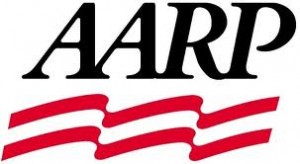 The Hill reports that the American Association of Retired Persons (AARP) has sent a letter to the Obama Administration warning that it opposes the inclusion of a 12 year period of data exclusivity for biologic drugs in the Trans Pacific Partnership. The group’s State and National Group Executive Vice President Nancy LeaMond wrote in a letter to US Trade Representative (USTR) Michael Froman that “AARP strongly believes the final trade agreement should not bind the U.S. to a 12-year market exclusivity period for brand-name biologic drugs.”
The Hill reports that the American Association of Retired Persons (AARP) has sent a letter to the Obama Administration warning that it opposes the inclusion of a 12 year period of data exclusivity for biologic drugs in the Trans Pacific Partnership. The group’s State and National Group Executive Vice President Nancy LeaMond wrote in a letter to US Trade Representative (USTR) Michael Froman that “AARP strongly believes the final trade agreement should not bind the U.S. to a 12-year market exclusivity period for brand-name biologic drugs.”
The full text of the letter is here.
The Obama Administration has shorten the period of data exclusivity for biologic drugs to seven years after which lower priced ‘biosimilar’ drugs could enter the market. (The current law is at 12 years.) AARP supports this policy, which it estimates would save the U.S. $3.8 billion annually on healthcare costs.
A TPP provision requiring 12 years of data exclusivity for biologic drugs would be the first provision of its kind in any trade agreement. Other trade agreements have required five years of data exclusivity for “small molecule” drugs, but none have specifically addressed the issue of data exclusivity for biologics. Nonetheless, USTR has come under pressure from the biotechnology industry and from the legislature to include 12 years of data exclusivity.
The trade group BIO sent a white paper to USTR last summer arguing that the “necessary intellectual property infrastructure required to encourage discovery and development of new biological products… must provide a minimum of 12 years of data protection for new biological products.”
The leadership of the Senate Finance Committee has urged USTR to seek “commitments from our trading partners that reflect the level of protection under U.S. law, for example 12 years of regulatory data protection for biologic pharmaceuticals.” Sen. Casely argued for 12 years of data exclusivity at USTR Froman’s confirmation hearing. On the other hand, Rep. McDermot wrote in an op-ed last summer that data exclusivity and other IP provisions in the TPP could “cost millions of lives in developing countries.”




